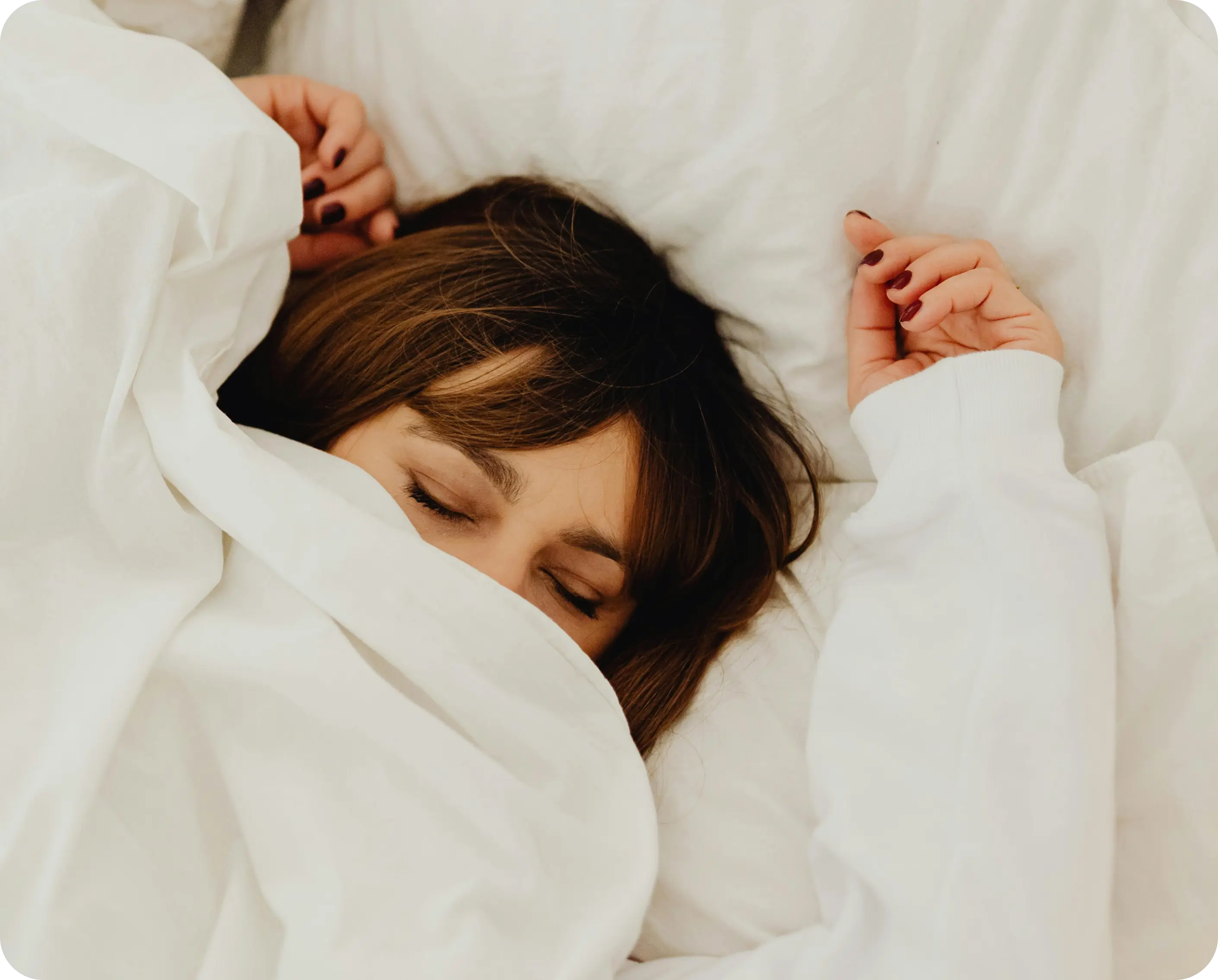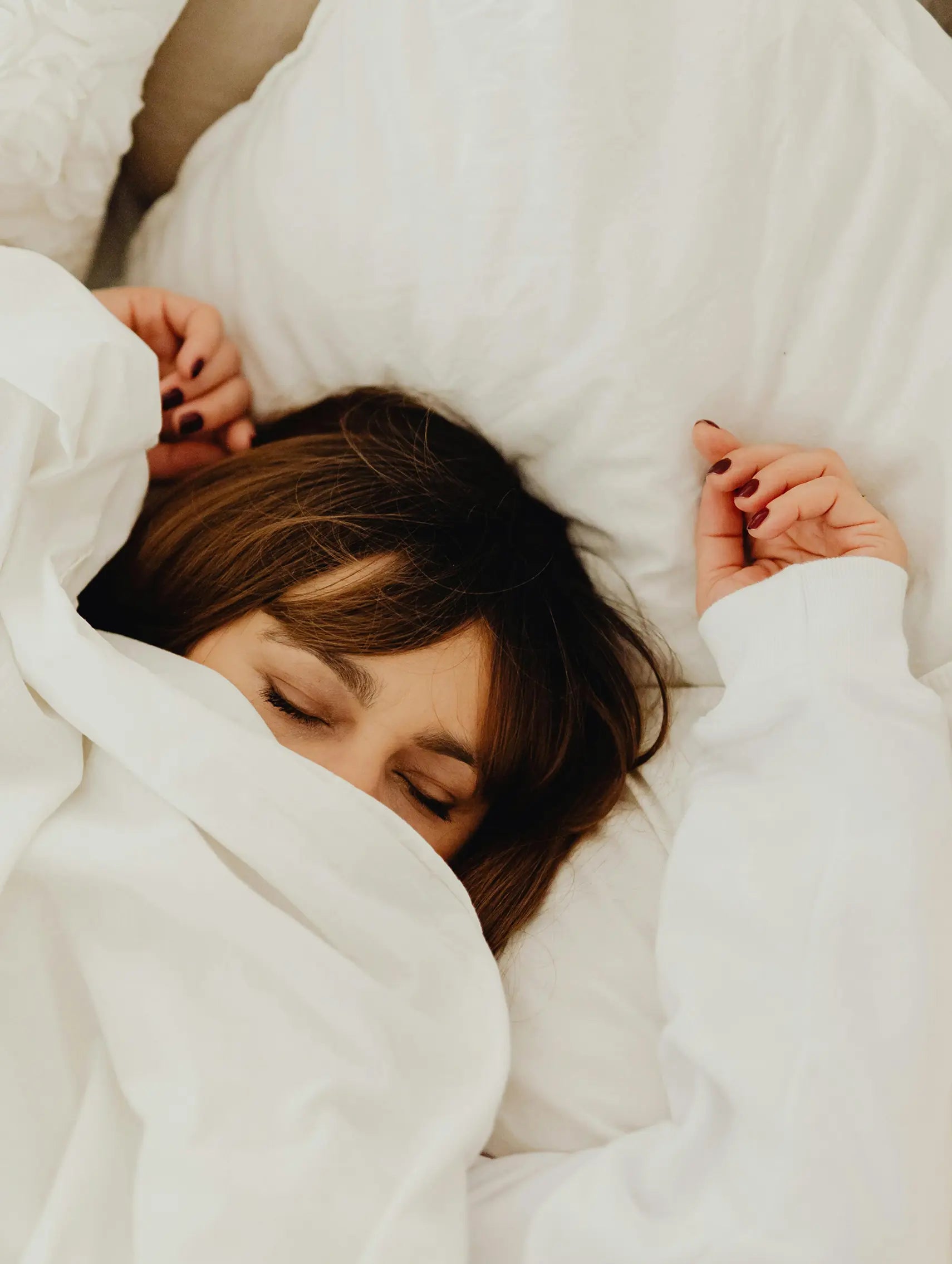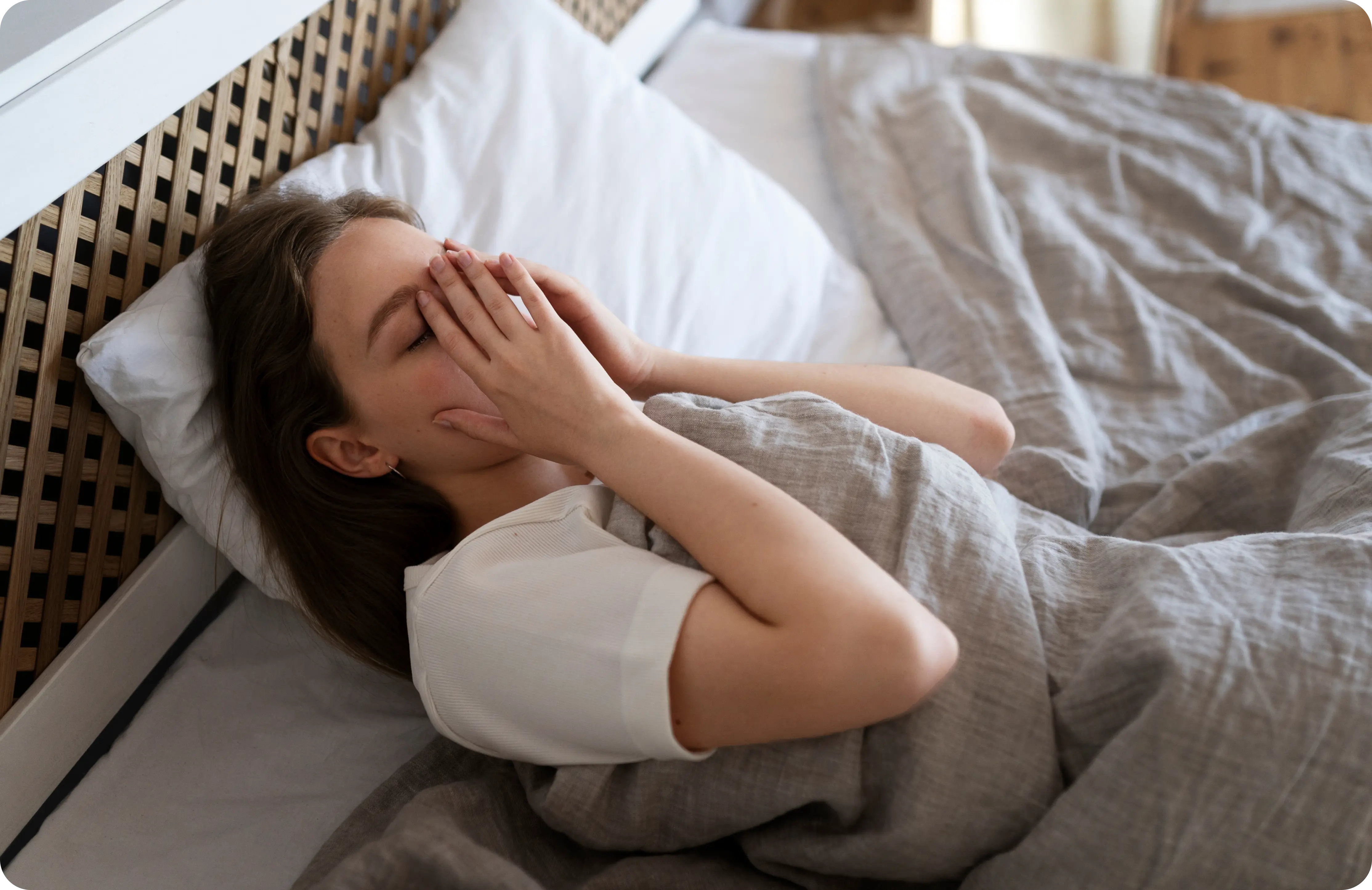Unlock the Power of Rest
We spend a third of our lives sleeping—but what exactly happens while we rest?


Every night, we cycle through sleep stages, each with a unique role. Non-REM stages help with physical recovery, while REM sleep is crucial for memory consolidation and emotional regulation.
Chronic sleep deprivation contributes to anxiety, depression, and irritability. Lack of sleep can make us emotionally reactive, impair decision-making, and lead to higher stress levels.


The number of fatalities involving drowsy drivers was 1.6% of total traffic fatalities in 2022
Sleep deprivation has real, measurable effects. Chronic sleep loss can lead to weight gain. It also impacts our reflexes and motor skills, making sleep deprivation just as dangerous for drivers as drinking alcohol.
Getting less than 6 hours of sleep can lead to impaired cognitive function and a weakened immune system.
Quality of sleep also matters—it’s not just about hours asleep, but ensuring deep, restorative stages are reached.
Each snore in the night disrupts your sleep cycle and prevents you from getting REM sleep.
Sleep-deprived individuals often struggle with focus, creativity, and problem-solving. A lack of rest hinders our ability to concentrate, slows reaction times, and makes multitasking harder.


Better Sleep is Possible
Improving your sleep quality doesn’t need to be complicated. Sleep hygiene is about setting up the right environment and habits to promote restful sleep.


Sleep is Self-Care. Sleep can transform your nights and your days. Tonight, give yourself the gift of quality sleep.
References
- National Institute of Neurological Disorders and Stroke (https://www.ninds.nih.gov)
- Harvard Medical School (https://www.health.harvard.edu)
- American Psychological Association (https://www.apa.org)
- Sleep Foundation (https://www.sleepfoundation.org)
- Centers for Disease Control and Prevention (https://www.cdc.gov)
- Journal of Sleep Research (https://onlinelibrary.wiley.com)
- Sleep Medicine Reviews (https://www.sciencedirect.com)
- Johns Hopkins Medicine (https://www.hopkinsmedicine.org)
- National Sleep Foundation (https://www.sleepfoundation.org)